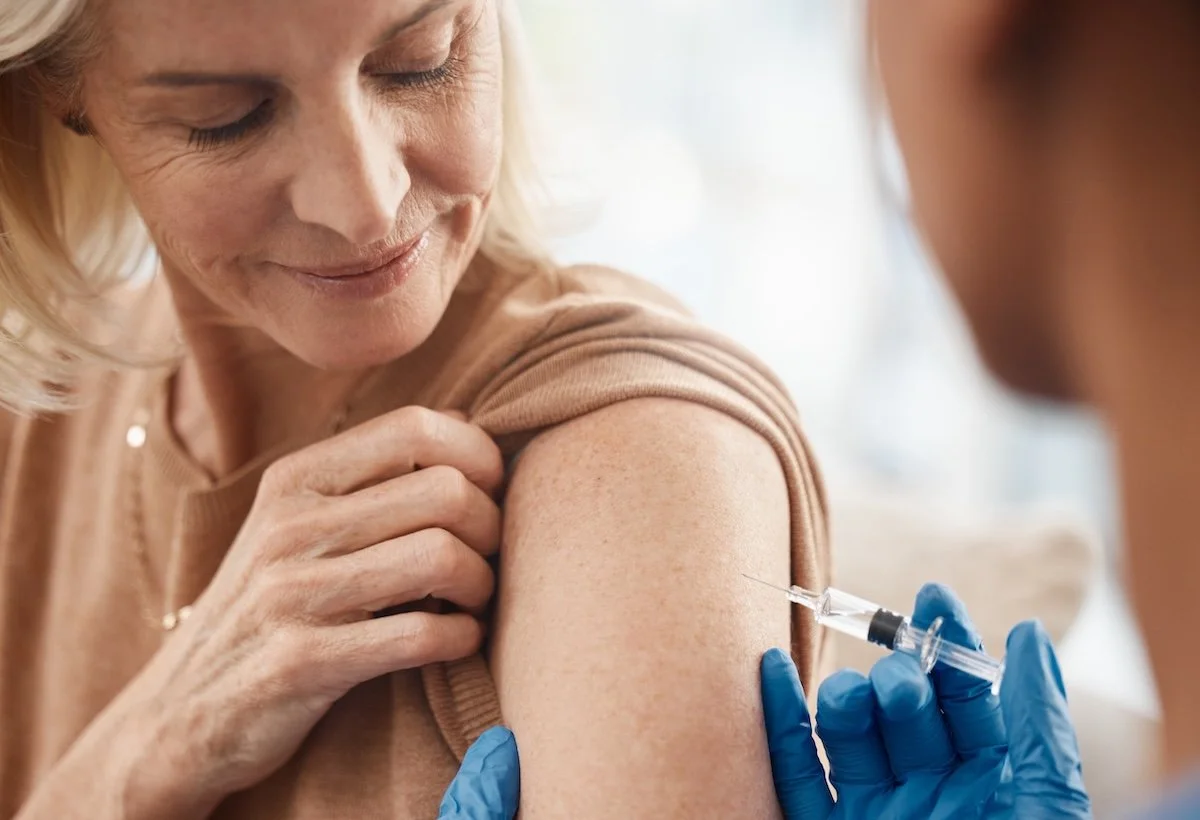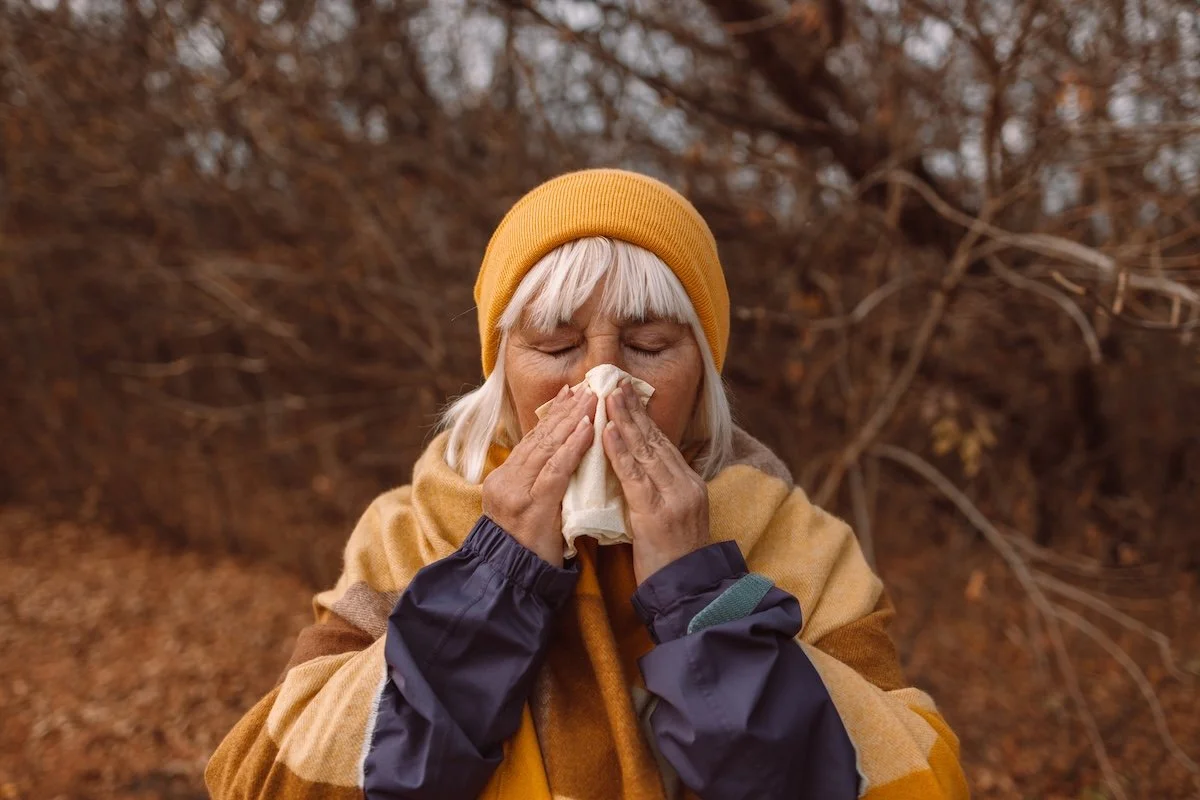Vaccines After 40: What Adults in Austin Should Get and When
What vaccines do adults need after 40?
Adults over 40 should stay current on flu, COVID, Tdap, shingles, and pneumococcal vaccines. Depending on age and health, RSV and hepatitis B may be recommended. Travel, caregiving, and changing immunity also affect vaccine needs—especially for adults in their 40s, 50s, and 60s.
Last Reviewed: September 09, 2025
Looking for a clear checklist of adult vaccines Austin adults need after 40. You are in the right place. Your 40s, 50s, and 60s are prime years to lock in protection against infections that can derail work, travel, and caregiving. Below is a practical roadmap, followed by quick decision points you can review during a preventive visit at Elevated Health.
The short list most adults should know
Flu: One dose every fall for everyone 6 months and older. Annual vaccination reduces hospitalizations and serious complications, especially in midlife and beyond.
COVID-19: Stay up to date with the current season’s vaccine. If you recently had COVID, you may consider waiting about 3 months before your next dose. Follow current CDC guidance each season.
Tdap/Td: Get one Tdap as an adult if you have not had it, then a Td or Tdap booster every 10 years. Tdap is recommended during each pregnancy as well.
Shingles (Shingrix): Two doses for all adults 50 and older, 2 to 6 months apart. Certain adults 19 and older with weakened immunity also qualify.
Pneumococcal: For adults 65 and older, and for some adults 19 to 64 with certain medical conditions. Options include a single PCV20 dose or PCV15 followed by PPSV23, depending on your history.
RSV: One single dose for adults 75 and older, and for adults 50 to 74 who have an increased risk of severe disease. This is not an annual vaccine.
Hepatitis B: Universal vaccination is recommended for adults 19 to 59. Adults 60 and older should be vaccinated if they have risk factors, and may receive it based on preference, even without known risk.
Travel vaccines: Hepatitis A, typhoid, yellow fever, polio booster, meningococcal, and others may be recommended depending on the destination. Plan 4 to 6 weeks before departure.
Why your 40s and 50s are the perfect time to catch up
Immunity from childhood shots can wane. Travel and caregiving add exposure. Hormonal and metabolic changes may shift your risk profile. Updating core vaccines now reduces the chance that a preventable infection upends your schedule, triggers a hospital visit, or sidelines a big trip.
Vaccine by vaccine: what to expect and when
Flu
Get one dose every fall. Vaccination is recommended for everyone 6 months and older, with rare exceptions. If you have questions about formulations, your clinician can match the product to your age and health conditions.
COVID-19
Plan for a seasonal dose based on current CDC guidance. If you recently had COVID, you can consider delaying your vaccine by about 3 months from symptom onset or positive test. Staying up to date lowers the risk of severe illness, especially if you have chronic conditions or are over 50.
Tdap and Td
If you never received Tdap as an adult, get it now for pertussis protection, then continue with a Td or Tdap booster every 10 years. If you are around a newborn, staying current helps protect infants who are too young for full vaccination. Pregnant patients should receive Tdap during each pregnancy.
Shingles (Recombinant zoster vaccine, Shingrix)
Shingles risk rises with age due to natural declines in immunity. Shingrix is recommended for all immunocompetent adults 50 and older in a 2-dose series. It can be given even if you have already had shingles or Zostavax. Adults 19 and older with immunocompromising conditions also qualify.
Pneumococcal
These vaccines protect against serious infections like pneumonia and bloodstream infections. Adults 65 and older should receive pneumococcal vaccination. Some adults 19 to 64 with conditions such as chronic heart, lung, or liver disease, diabetes, or immunocompromise should be vaccinated earlier. Depending on your prior history, clinicians use either a single PCV20 dose or PCV15 followed by PPSV23.
RSV
RSV can be severe in older adults. CDC recommends a single dose for all adults 75 and older, and for adults 50 to 74 at increased risk of severe disease. This is not a yearly vaccine, so your clinician will confirm if and when you qualify.
Hepatitis B
Hepatitis B is a liver infection that can become chronic. ACIP recommends universal vaccination for adults 19 to 59. Adults 60 and older should be vaccinated if they have risk factors such as diabetes, chronic liver disease, or occupational exposure. Adults 60 and older without known risks may also choose to be vaccinated after discussion. Several schedules are available, including 2-dose and 3-dose options.
MMR and Varicella, if needed
If you were born in 1957 or later and lack evidence of measles immunity, get MMR. Adults without evidence of immunity to chickenpox should get the varicella vaccination. Your clinician can confirm through records or bloodwork when needed, and travel plans may add urgency.
HPV catch-up
HPV vaccination prevents cancers caused by HPV. Catch-up is recommended through age 26. For ages 27 to 45, vaccination is a shared decision based on personal risks and benefits.
Travel vaccines
International trips can change your vaccine needs. Check your destination pages and Travel Health Notices, and schedule a travel consult 4 to 6 weeks before departure. Many adult travelers benefit from Hepatitis A and typhoid, and some itineraries call for yellow fever, Japanese encephalitis, meningococcal, or a polio booster. Even last-minute travelers can start with applicable protection.
Safety, timing, and real-world tips
Coordinating shots: It is common to receive more than one vaccine at the same visit. Your clinician will help sequence doses if spacing is preferred for specific products. CDC’s adult schedule is the master guide for timing.
Recent COVID infection: You may consider waiting about 3 months from infection before your next COVID dose. This can improve response while maintaining protection.
Mild side effects: Soreness, fatigue, and low-grade fever are the most common and usually resolve within 48 hours. Talk with your clinician if you take blood thinners or have had prior vaccine reactions.
Keep records together: Bring past vaccine records or snapshots from patient portals so your plan is accurate from day one.
How Elevated Health makes this easy in Westlake Hills
At Elevated Health, a concierge internal medicine practice led by Dr. Sonia Durairaj in Westlake Hills, your vaccine plan is personalized and straightforward to complete. Members enjoy unhurried visits, same-day or next-day appointments, direct messaging, and assistance with coordinating any vaccines administered off-site. We review your history, travel plans, and risk factors, then build a schedule that fits your life. During your preventive visit, we can update routine vaccines, order what needs to be given elsewhere, and make sure results and documentation flow back into your chart without “phone-tree” hassles.
Make your preventive visit do more
If you are due for updates or planning travel, let us turn your checklist into a clear plan. Call 512-759-6033 or visit Elevated Health to schedule a preventive visit and update your vaccines while you are here. We will confirm what you need, time doses correctly, and coordinate any specialty or travel vaccines so you can get on with your life in Westlake Hills.



















